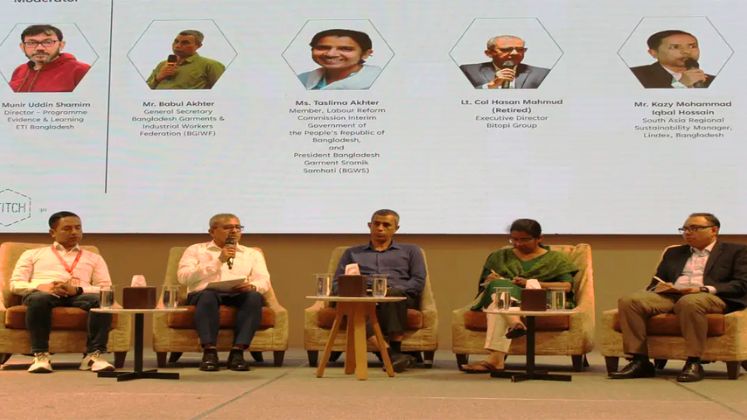
According to a recent poll, as of September 2024, roughly 68% of Bangladeshi ready-made garment (RMG) enterprises had implemented the new minimum salary. The Sustainable Textile Initiative: Together for Change (STITCH), in collaboration with Brac University, conducted the study, which highlights the industry’s ongoing wage compliance challenges.
Titled The Minimum Wage 2023 Implementation Status & Its Impact on RMG Workers, the study looked at data from 385 industries and 1,113 workers in Export Processing Zones (EPZs) and non-EPZs in Dhaka, Chattogram, Gazipur, Mymensingh, Comilla, and Narayanganj.
The results show that all big firms and EPZ factories in the sample had adopted the updated pay. In contrast, 32 per cent of the enterprises in the sample—all of which were in non-EPZ sectors—had not yet complied. Of these, 22 per cent had just slightly raised their employees’ compensation.
The Bangladesh Garment Manufacturers and Exporters Association (BGMEA) and the Bangladesh Knitwear Manufacturers and Exporters Association (BKMEA) were among the major industry bodies that 80 per cent of the conforming factories belonged to, according to the survey.
The findings were presented at a multistakeholder event in Dhaka, which was attended by government officials, labour federations, business associations, RMG companies, brands, labour rights organisations, and academics. After Abil Bin Amin, Executive Director of ETI Bangladesh, kicked off the session, Ruben Korevaar, Policy Adviser at Mondiaal FNV, provided an overview of the STITCH program and the goal of the study.
Mamunur Rashid, a senior district judge and the chairman of the Bangladesh Minimum Wage Board, was the main guest. During the debate, speakers emphasised the need for further research on industrial costs, workers’ living standards, and the consequences of inflation in order to enable evidence-based wage-setting discussions among sectoral stakeholders.
Increasing the Minimum Wage Board’s authority and capability was a major topic of conversation. The board’s usefulness is now limited since it lacks the power to choose which industries to assess wages for or to nominate its members. Reforms were demanded by experts to allow the board to determine timely and equitable pay while giving industries enough time to adapt.
In order to guarantee fair pay implementation and enhance workers’ living conditions in Bangladesh’s crucial RMG industry, the study emphasises the significance of ongoing monitoring and stakeholder participation.






